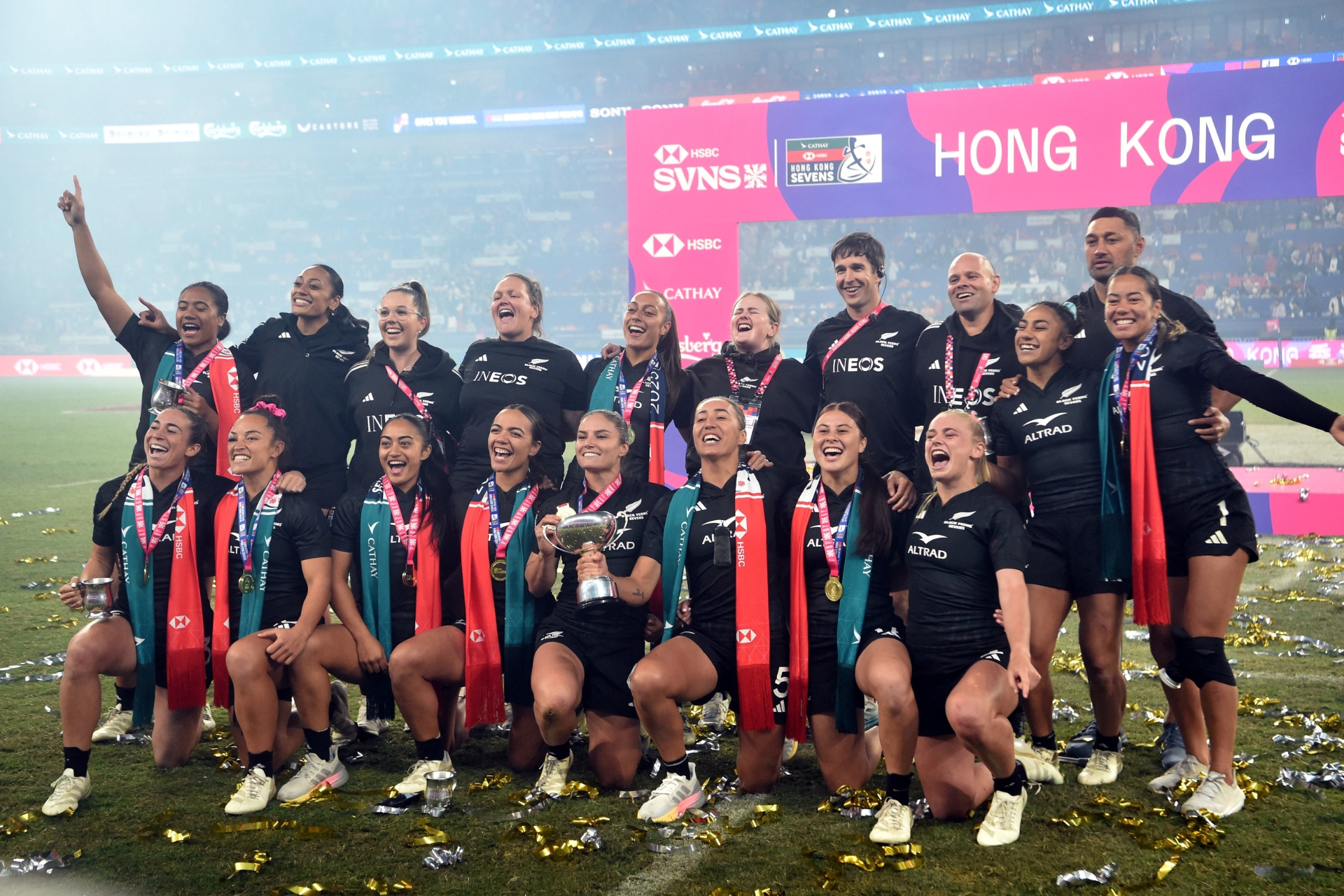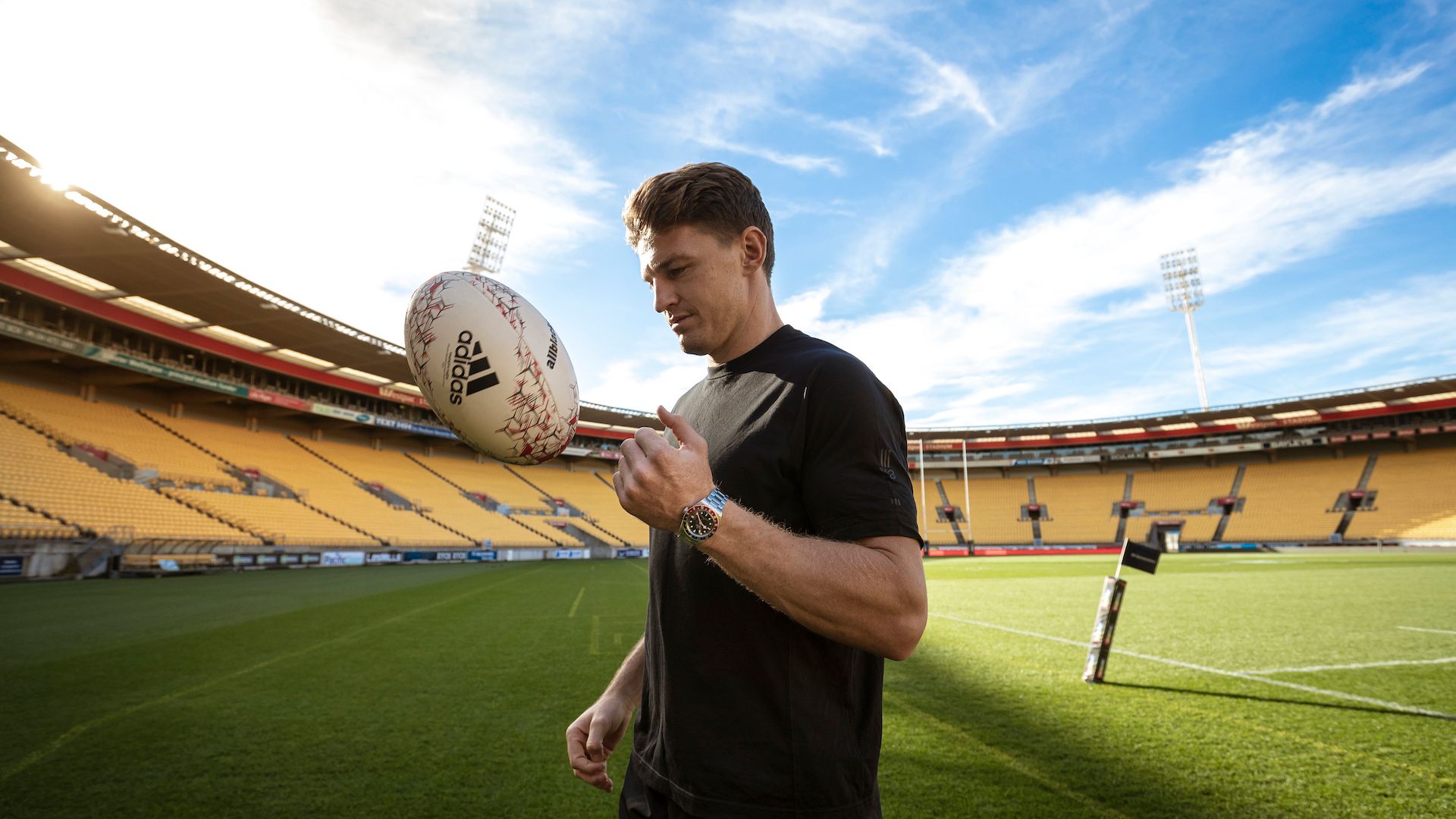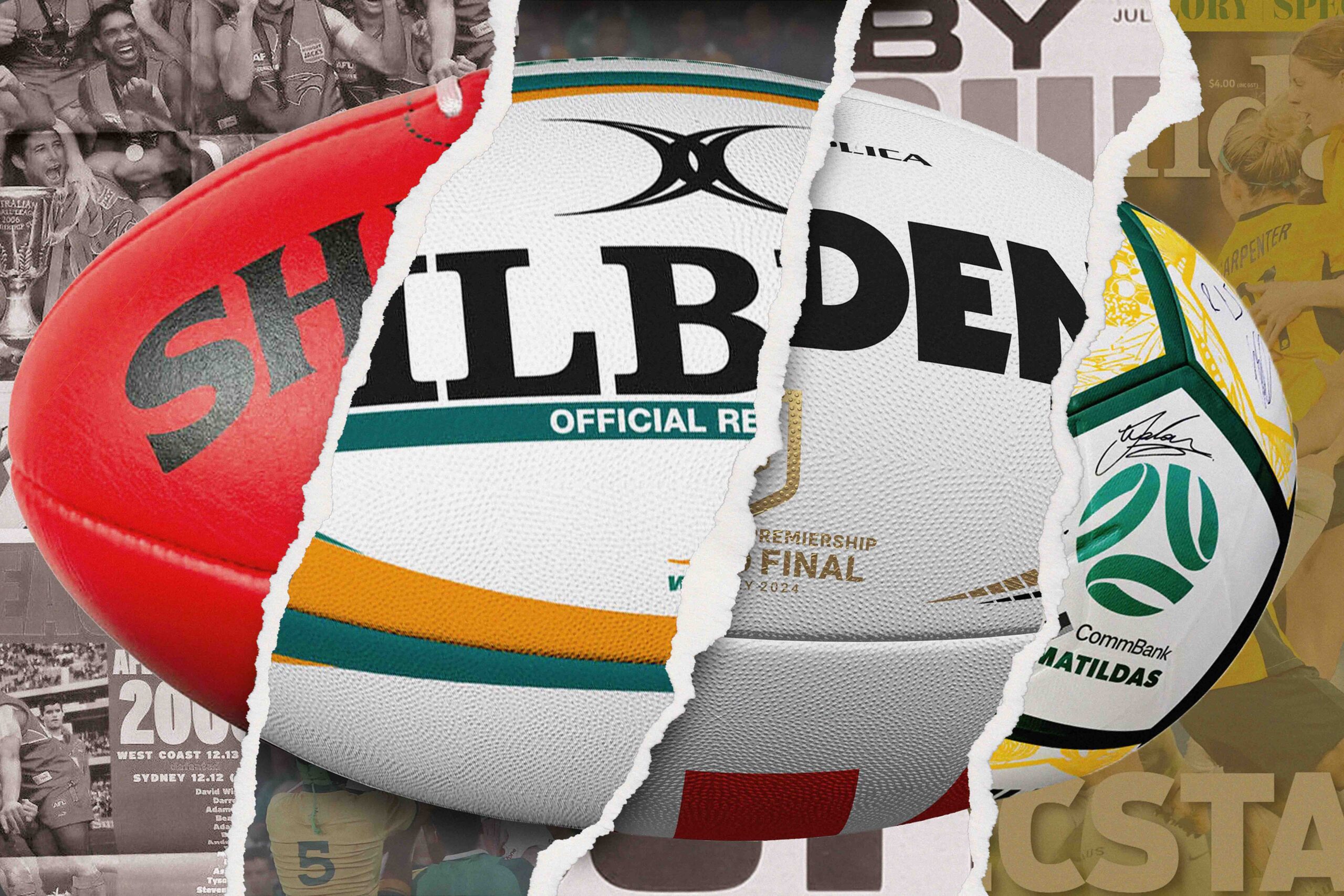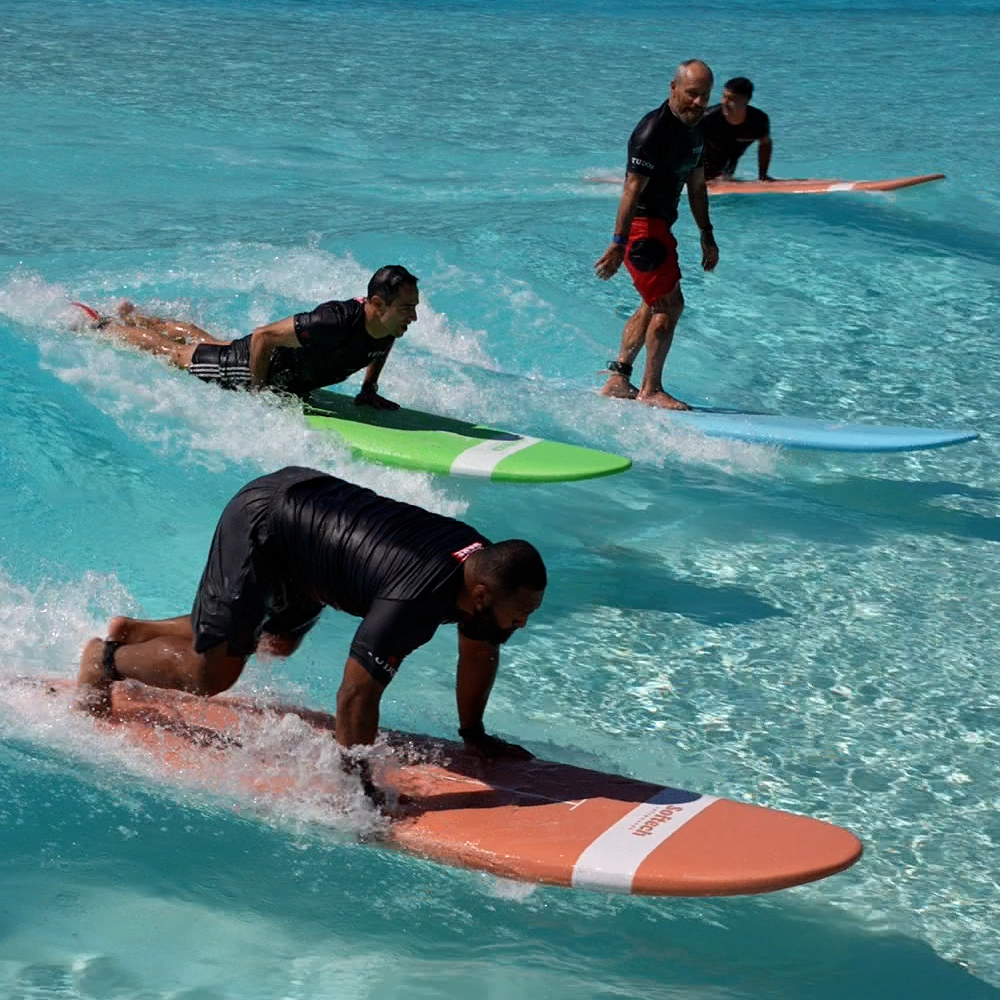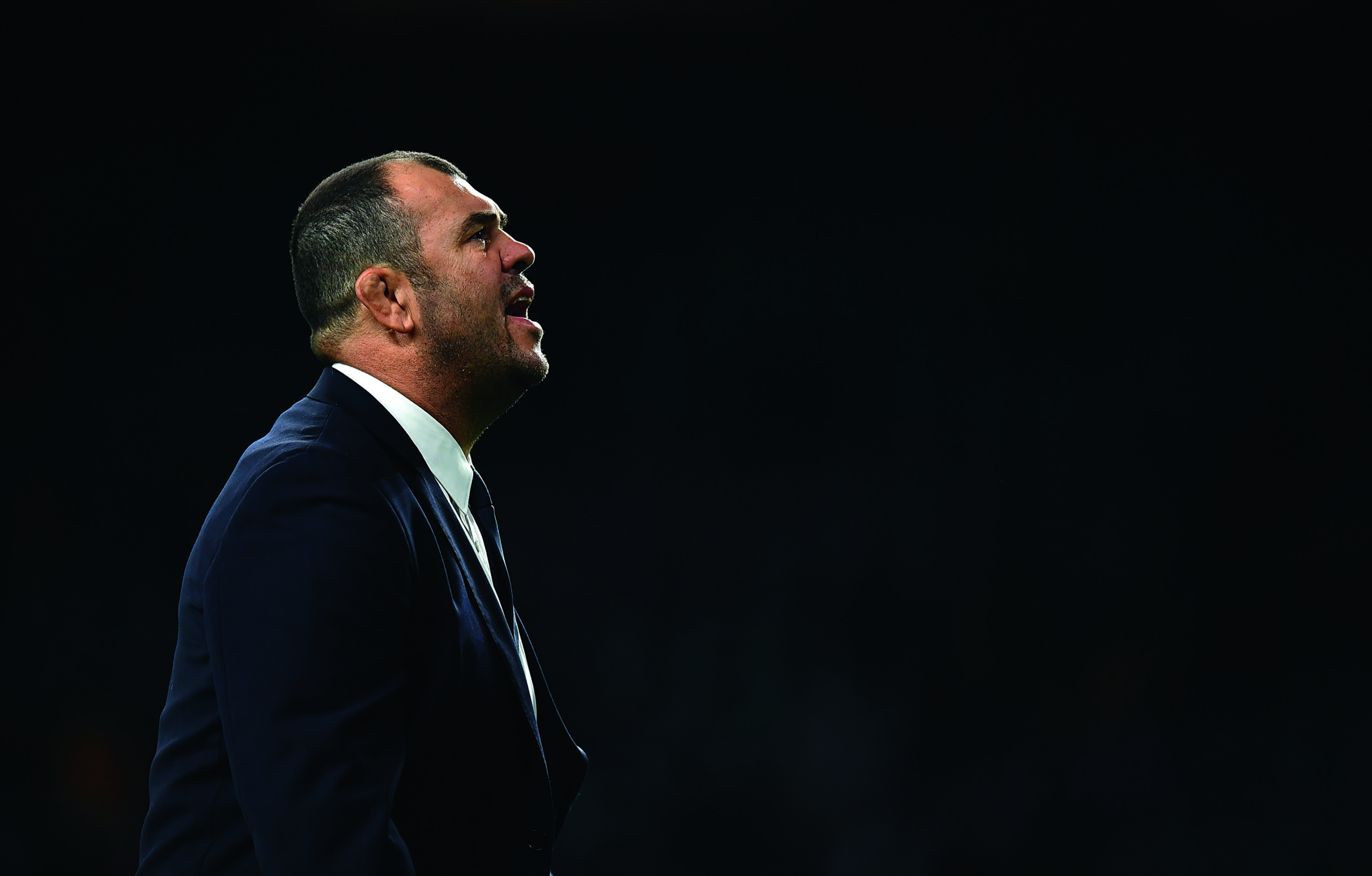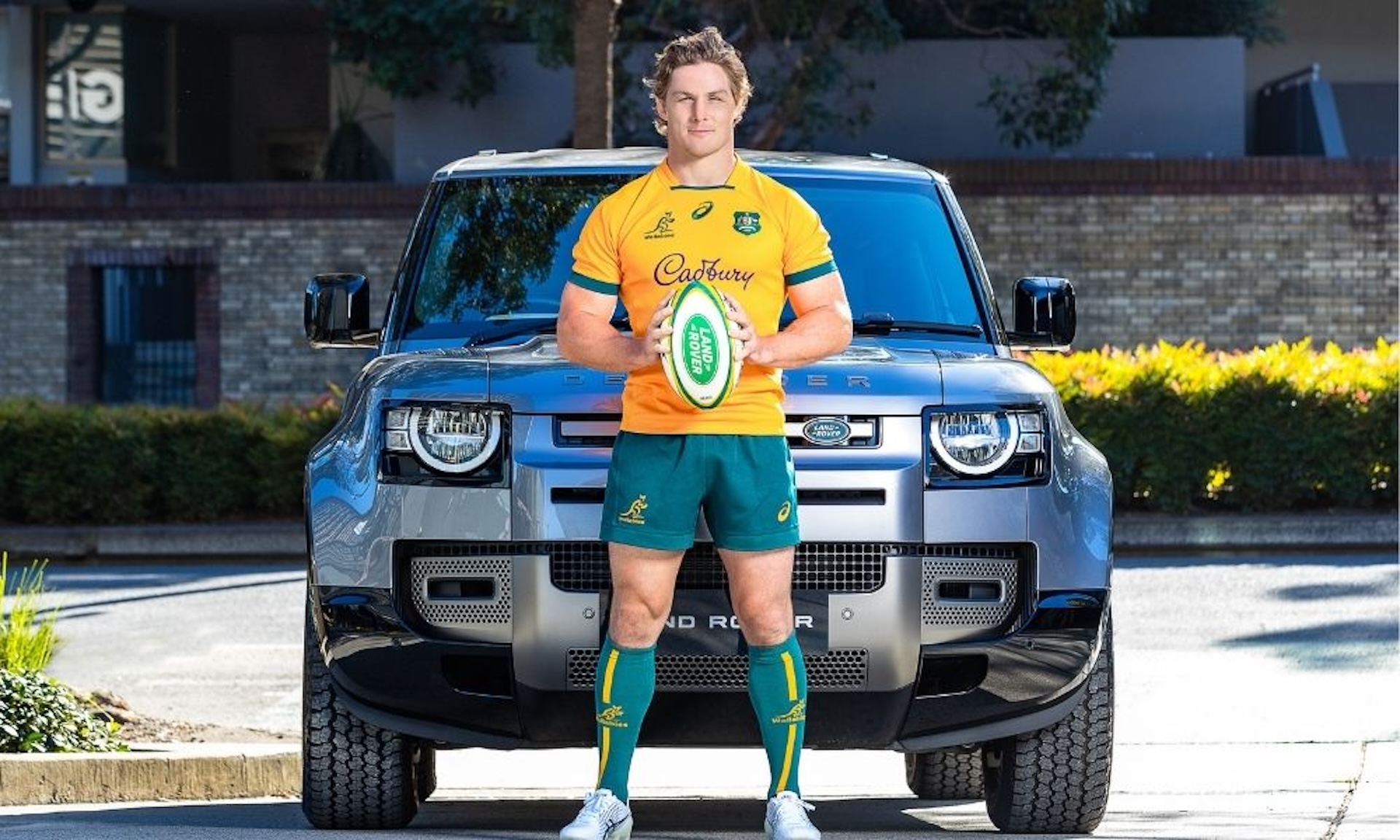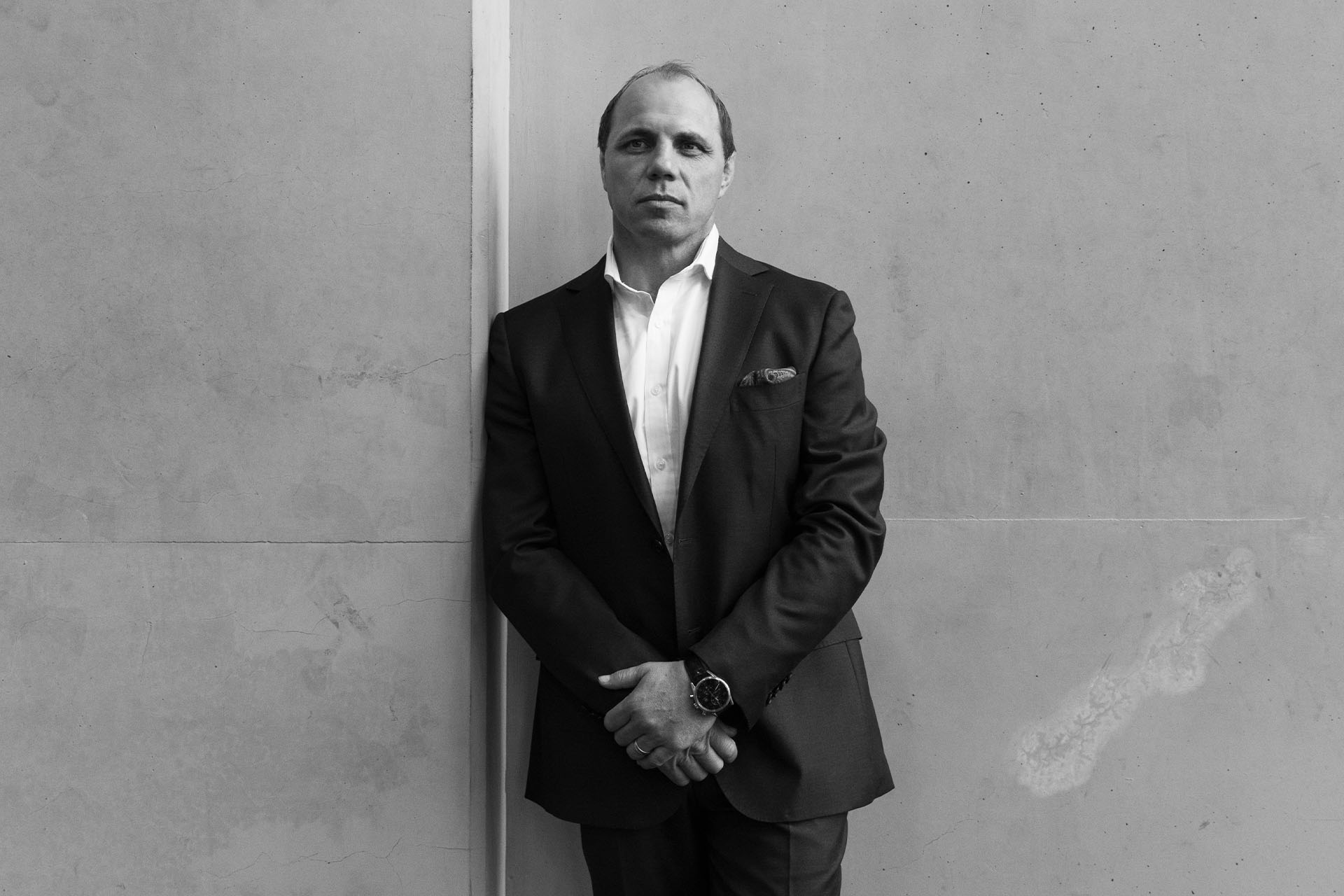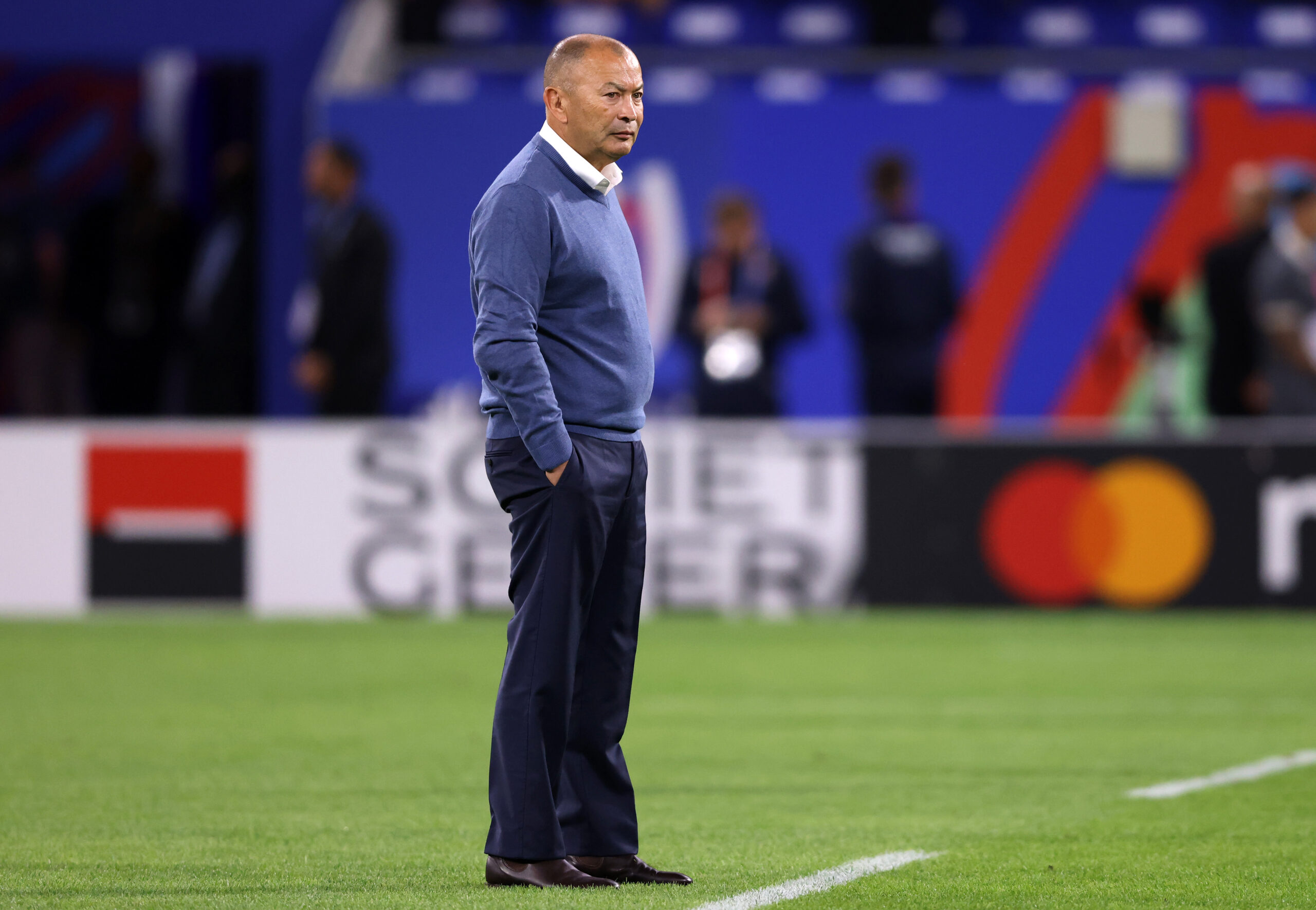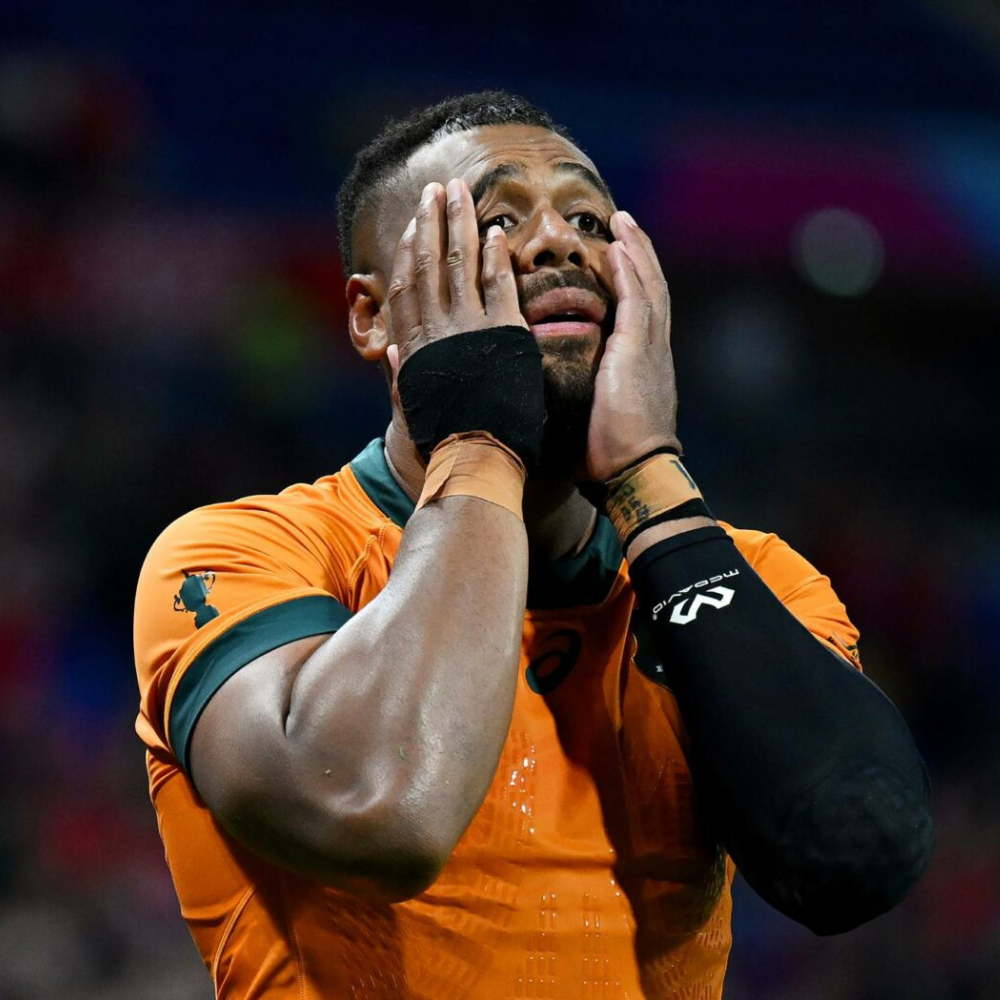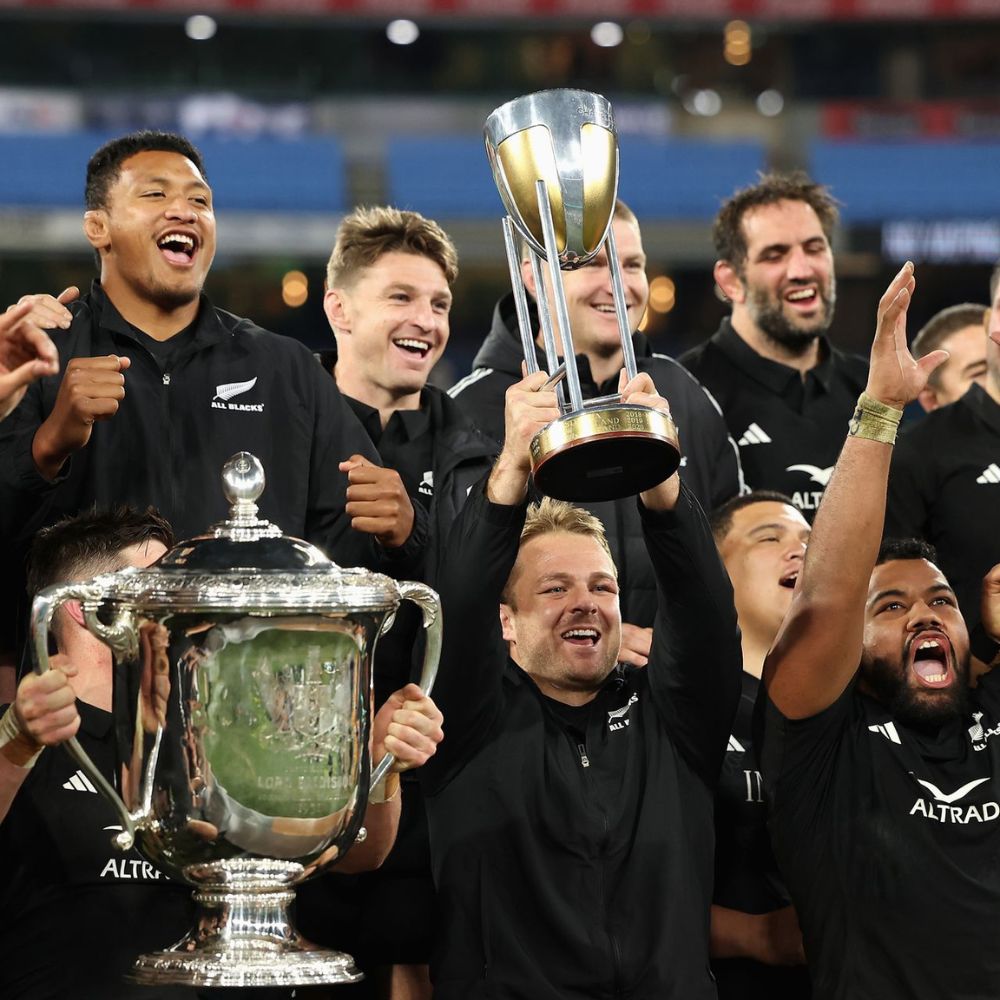Everything you need to know about the 2023 Rugby World Cup
Desperately trying to catch up on the Rugby World Cup before the tournament kicks off, but painfully short on time? Don’t worry, we’ve got you covered. This is your ultimate guide to the 2023 Rugby World Cup.
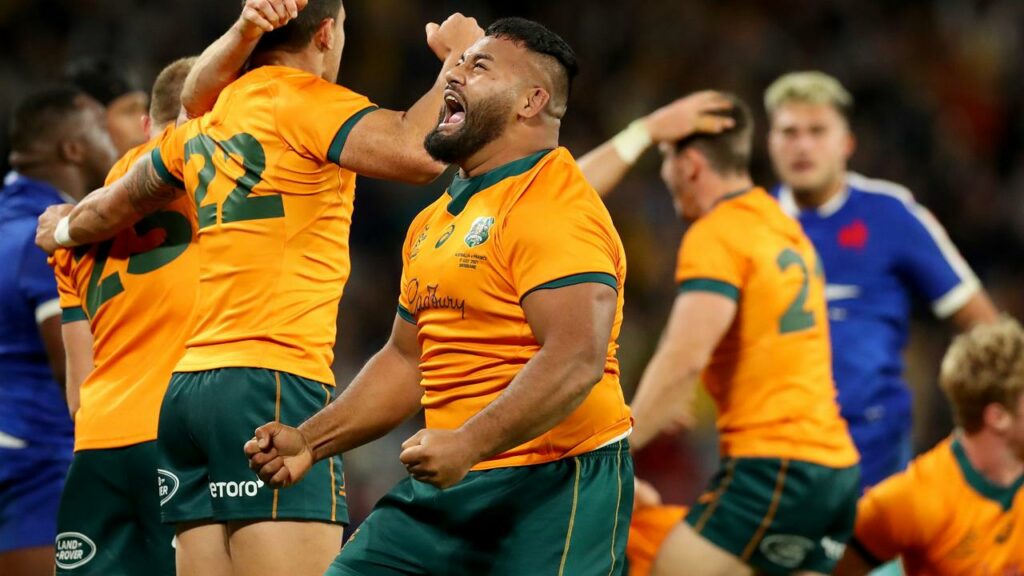
IN THE EARLY DAYS of international rugby union, any game that wasn’t contested by two of the sports giants was hardly worth watching. Whenever highly skilled outfits like the Wallabies, All Blacks, Springboks or England—who disappointingly don’t have a nickname—took on an inferior opponent, it was like déjà vu. Time after time, the heavyweights would embarrass smaller nations and time after time you would almost feel sorry for the poor blokes on the losing side copping a beating for 80 minutes.
Likewise, early editions of the Rugby World Cup typically saw the leading contenders batter a selection of amateur players in the pool stage, before the minnows were eliminated and the real competition began deep in the knockout stages. Thankfully, those days are long gone.
Last month, the tiny, rugby-obsessed Pacific nation of Fiji defeated England 30-22 at England’s own Twickenham Stadium. The result was Fiji’s first ever victory over the Poms, and serves as a testament to how much rugby has grown outside of its traditional strongholds.
With nations like Fiji, Argentina and Ireland now emerging as genuine contenders, and with historic heavyweights like England, Australia and Wales falling from grace, the 2023 World Cup is set to be one of the most hotly contested and unpredictable in memory. Here’s all the information you need to ensure your ball knowledge is up to scratch before kick-off.
When and where is the 2023 Rugby World Cup?
This year’s tournament will be the first World Cup to take place entirely in France, who have previously served as co-hosts.
The competition will run for almost two months, beginning on September 9th, with the final being played on October 29th.
What teams are playing at the Rugby World Cup?
20 nations have qualified for the 2023 Rugby World Cup and way back in 2020 they were sorted into four pools of five based on their world rankings at the time. Not all pools are created equal due to most nations’ rankings changing enormously since the draw. Some pools are rather top-heavy, while others are particularly short on high-level talent.
Each nation will play every member of their pool in a round-robin format. After the conclusion of the pool stage, the top two teams will progress to the quarterfinals, and it’s win or go home from there.
Below are the nations comprising each pool. The number beside each nation indicates their current world ranking.
Pool A
France (3)
New Zealand (4)
Italy (13)
Uruguay (17)
Namibia (21)
Pool B
Ireland (1)
South Africa (2)
Scotland (5)
Tonga (15)
Romania (19)
Pool C
Fiji (7)
Australia (9)
Wales (10)
Georgia (11)
Portugal (16)
Pool D
Argentina (6)
England (8)
Samoa (12)
Japan (14)
Chile (22)
Courtesy of the peculiar—and soon to be scrapped—tradition of conducting the World Cup draw three years before the tournament begins, all four of the highest ranked nations have wound up in pool’s A and B. That’s because deciding pools based on world rankings three years ago didn’t account for the vast improvement of many nations since then. Therefore, not only will each top four team face another top four team in the pool stage, they’re likely destined to face another top four team in the quarterfinals, as the winners and runners up of pool’s A and B will meet. In short, only two of the top four nations can possibly progress to the semi-final stage, and there’s certain to be a handful of deep runs from surprising underdogs.
Who are the favourites to win the Rugby World Cup?
As noted above, all four of the tournament favourites are in pool’s A and B. Those nations (in order of world ranking) are Ireland, South Africa, France and New Zealand.
Considered a dominant force in international rugby for the two decades, the All Blacks have ever so slightly slipped from their usual spot at the top of the world rankings down to fourth. New Zealand managed to leave a middling 2022 in their rear-view mirror with an impressive victory in the Rugby Championship back in July, which included a win against the formidable Springboks of South Africa. But a 35-7 defeat at the hands of the Springboks last month will have the dented the All Blacks’ confidence going into this tournament. Nevertheless, it could’ve been just one bad day, and the Kiwis remain a strong contender.
Joining New Zealand in pool A is France, who have won 15 of their 17 tests since the start of 2022, which included a demonstration of how to take down the All Blacks. First choice fly-half and talismanic playmaker, Romain Ntamack, has been ruled out of the tournament and his absence will quell some of the hype surrounding France’s chances, but the nation has proven they can beat anyone on any given day.
Ireland have emerged from years of mediocrity and reached world number one status for the first time in the nation’s history in 2019. The Irish have been the world’s top ranked nation since 2022 and have taken on all comers in that time. Rough, ruthless, and efficient, Ireland have only lost six games in the last four years and will have a great shot at winning their first World Cup.
Lastly, we have defending champions South Africa. Despite winning the 2019 World Cup, the Springboks couldn’t manage to hold onto the world number one ranking for the duration of their world champion reign, but the nation is known for bringing its A game when it really matters. South Africa is sticking with a similar squad to the one that brought home the cup in 2019, but it’s worth noting that New Zealand are the only World Cup winning nation that has gone back-to-back.
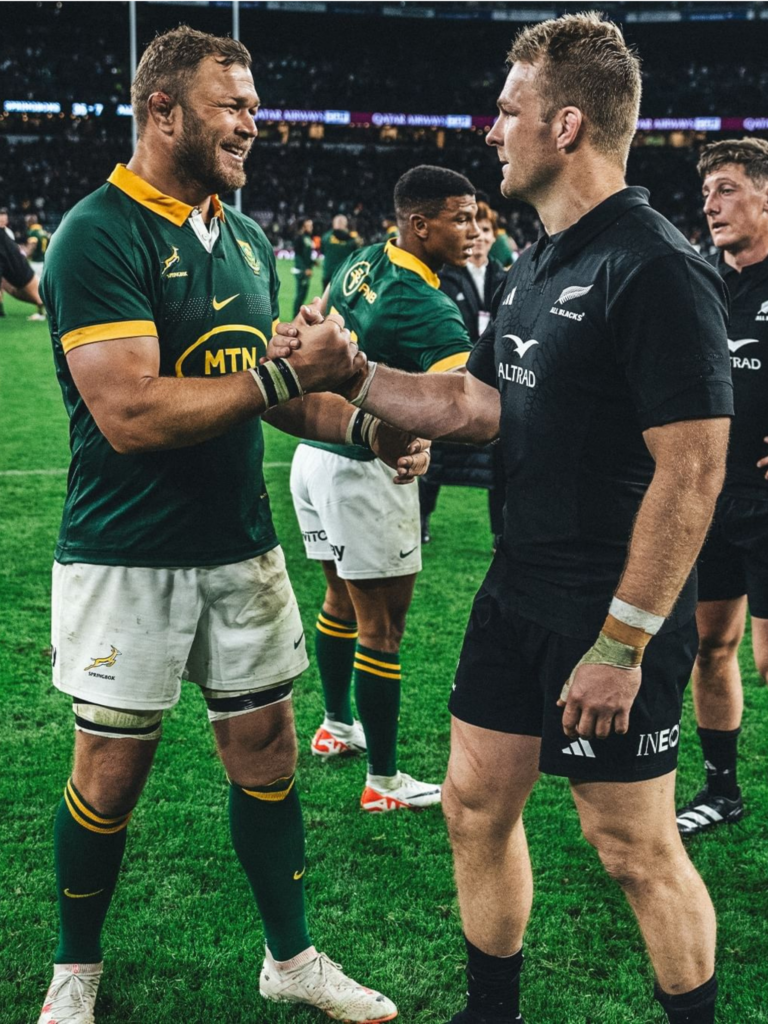
Does Australia have a chance of winning the Rugby World Cup?
Alarm bells are well and truly ringing in the Wallabies camp—and they have been for some time. The Wallabies won only five of their 14 games in 2022 and brought in Eddie Jones for a second head coaching stint to help steady the ship, but things have hardly improved.
Jones is yet to secure a win five matches into his second tenure. The Wallabies have stumbled through a winless Rugby Championship and copped brutal defeats at the hands of New Zealand, France, South Africa and even Argentina. Regardless of form, Jones believes the Wallabies are “definitely moving in the right direction”.
Jones has named an inexperienced, youthful squad for the World Cup and says the Wallabies could pull off some shock results. “No-one believes we can do it, but we believe. The coaches believe, the players believe and that’s all that matters,” Jones said.
The Wallabies, who have won the World Cup on two occasions, are currently ranked 9th in the world and have the good fortune of avoiding any of the leading contenders in the World Cup’s pool stage. Unfortunately, they’ve been drawn alongside a selection of promising middle-of-the-pack nations, and nearly every game could go either way. An Australian exit before the knockout stages isn’t unthinkable.
The Wallabies will meet tenth-ranked Wales in the pool stage, who are undergoing a similar rebuild after a recent downturn in results. Fiji are the pool’s top ranked side, with the Drua earning a reputation as giant killers following their win over England and the establishment of a unique, electric playing style. The bottom end of the pool is still nothing to trifle with, as Georgia have emerged as a rising force, and Portugal have come out of nowhere to secure just their second World Cup appearance. How pool C will unfold is anyone’s guess.
Depending on where they finish, assuming they even qualify for the knockout stage, the Wallabies will likely face either England or Argentina in the quarterfinals. Both are currently ranked higher than Australia, so unless the Wallabies can pull off some upsets, don’t expect the World Cup trophy to be coming down under.
Bring it on 💪
— Wallabies (@wallabies) September 7, 2023
Your first team of the #RWC2023 is locked in 🔒#Wallabies pic.twitter.com/qfR92GgFN6
Who are the players to watch at the Rugby World Cup?
Apart from having an unbreakable password of a surname, Wallabies winger Mark Nawaqanitawase has also been touted as the world’s premier outside back. Nawaqanitawase is a constant try-scoring threat and might be the quickest player in the tournament. He’s also only 22.
Irish captain Johnny Sexton is already a legend in his own right, but at 38 years old, the fly-half is running out of time to leave a World Cup winning legacy. The quarterfinals is the furthest Ireland have gone at the World Cup, but they’ve never been stronger than right now. Sexton, who is basically a player-coach, will be essential to his nation’s success.
French scrum-half Antoine Dupont is simply the best at what he does. Dupont’s abilities can singlehandedly win matches, with his kicking and passing game second to none. Dupont is a big reason for France’s high world ranking, and he could help them win a World Cup on home soil.
Fiji’s emergence as a genuine contender has a lot to do with the nation’s unorthodox play style, which is exemplified by hard-hitting breakaway Levani Botia, who is ominously known as the ‘Demolition Man’. Former rugby league star Semi Radradra is also bolstering the Drua’s ranks after making a successful code switch. As a winger with size and pace, Radradra can beat anyone one on one, and has a similarly imposing nickname, the ‘Semi Trailer’.
To speak plainly, All Blacks’ flanker Ardie Savea is one of the world’s best rugby players. An outstanding ball-carrier, tackler, try scorer and leader, Savea can do it all and will play a pivotal role if the Kiwis make another deep run.
Finally, we get to the Italian stallion, the young Ferrari, Ange Capuozzo. The fullback won the breakthrough player of the year award last year and has been critical in Italy’s ascension from Six Nations punching bag to dark horse candidates. Capuozzo’s scintillating speed and game-changing ability could help Italy pull off the upset of the tournament against France or New Zealand in pool A.
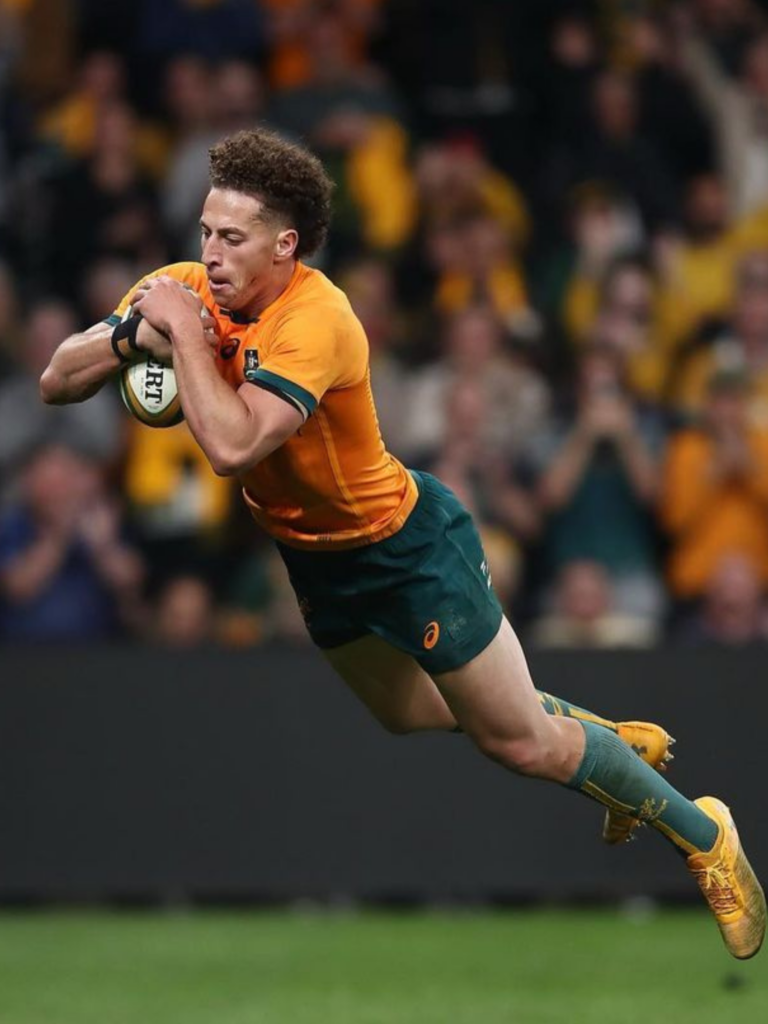
When do Australia play at the Rugby World Cup?
Game 1: Australia vs Georgia, Sunday September 10th, 2am AEST
Game 2: Australia vs Fiji, Monday September 18th, 1:45am AEST
Game 3: Australia vs Wales, Monday September 25th, 5am AEST
Game 4: Australia vs Portugal, Monday October 2nd, 1:45am AEST
Where can you watch the Rugby World Cup?
All matches from the 2023 Rugby World Cup will be available to stream on Stan Sport. Every Wallabies match and the final will be broadcast live on Channel Nine and streamed on 9Now.
Related:
Why isn’t drug-testing of athletes the same across all sports: an explainer
The Ted Lasso effect: why American celebrities are taking over English football












